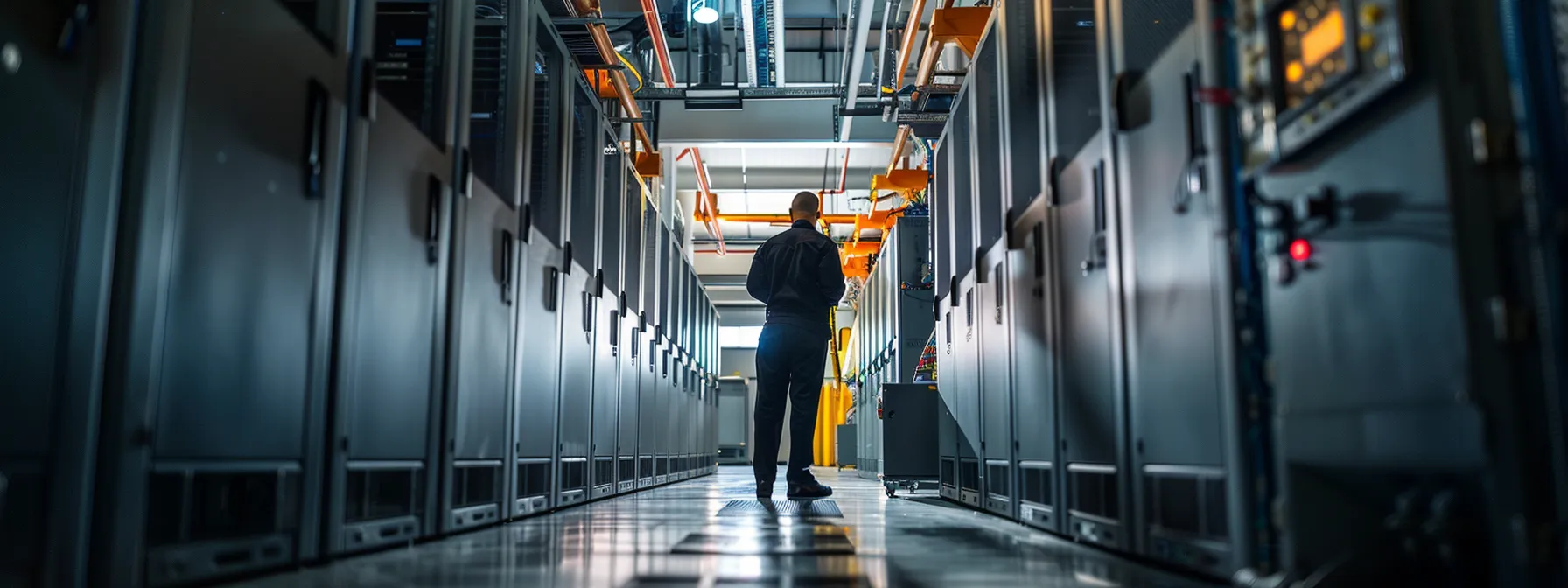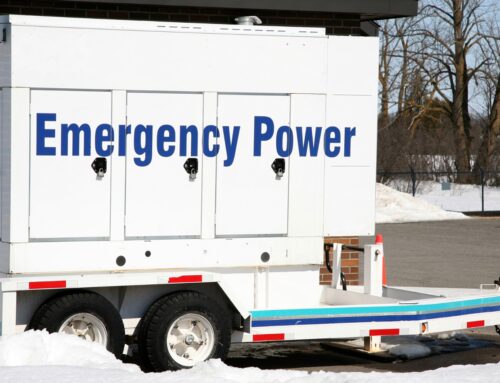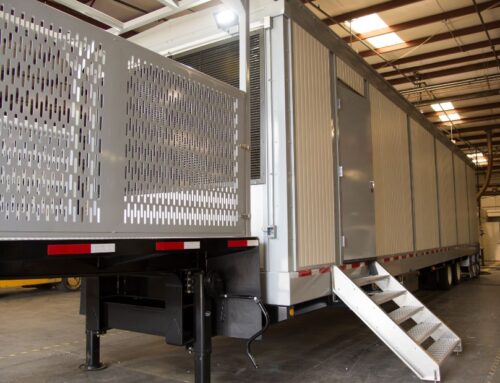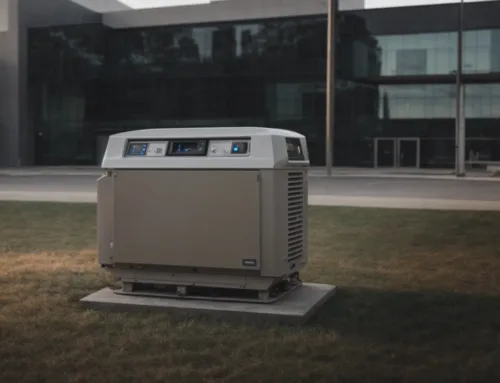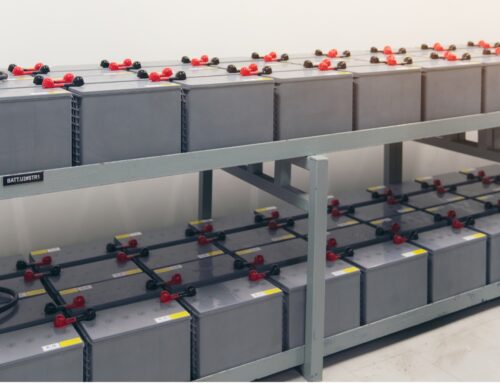Essential Tips for Selecting an Uninterruptible Power Supply in Philadelphia for Your Enterprise — Selecting the right uninterruptible power supply (UPS) is crucial for businesses in Philadelphia that rely on continuous electricity. A UPS provides backup power during outages, ensuring critical systems and data centers remain operational.
This alternating current backup solution protects against data loss and equipment damage caused by sudden power interruptions. In this article, we’ll explore essential tips for choosing the ideal UPS for your enterprise in Philadelphia. From assessing power needs to understanding different technologies, we’ll cover key factors to consider when making this important investment.
- Assessing Your Enterprise's Power Needs Before Selection
- Understanding Different UPS Technologies for Businesses
- The Importance of Runtime and Battery Life in UPS Selection
- Identifying Reliable UPS Vendors in Philadelphia
- Cost Considerations When Investing in UPS for Your Business
- Future-Proofing Your UPS Investment for Your Enterprise
- Frequently Asked Questions
- Conclusion
Assessing Your Enterprise’s Power Needs Before Selection
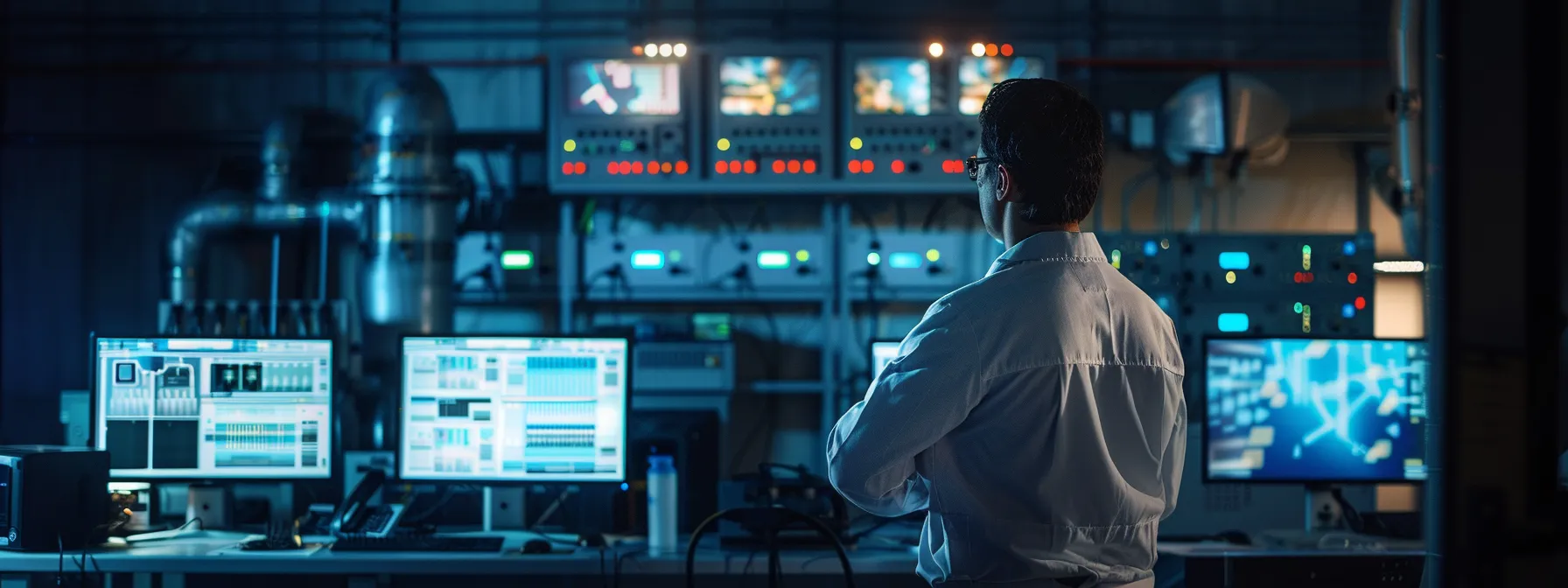
Selecting an appropriate UPS Power Rental in Philadelphia requires a thorough assessment of an enterprise’s power needs. This crucial step ensures that mission-critical systems remain operational during power outages. Engineers must carefully evaluate power consumption, identify essential systems, and calculate the required UPS capacity for optimal resilience. By partnering with reputable providers, businesses can develop a comprehensive power protection strategy tailored to their specific requirements.
Estimate Your Power Consumption During Outages
Estimating power consumption during outages is crucial for selecting an appropriate UPS system. Businesses must analyze the energy requirements of critical equipment in their server rooms, including servers, networking devices, and cooling systems. This assessment helps prevent data loss and minimize downtime during power interruptions.
To accurately estimate power needs, organizations should conduct a comprehensive audit of their IT infrastructure. This process involves measuring the power draw of individual components and considering factors such as peak usage periods and potential future expansions. Proper estimation ensures effective power management and reduces the risk of unexpected shutdowns during maintenance or emergencies.
Identify Critical Systems That Need Backup
Identifying critical systems that require backup power is essential for maintaining operational continuity in manufacturing facilities and supply chain operations. Organizations must prioritize infrastructure components such as servers, network switches, and rectifiers that convert alternating current to direct current for sensitive equipment. These systems form the backbone of enterprise operations and require uninterrupted power to prevent costly downtime. Critical power products are therefore indispensable.
A thorough assessment of an enterprise’s UPS vendors in Philadelphia should consider the impact of power loss on various departments and processes. This evaluation helps determine the appropriate UPS capacity and runtime requirements for each system. Key factors to consider include:
- Production line equipment
- Data centers and server rooms
- Communication systems
- Security and access control systems
- Emergency lighting and evacuation systems
Calculate Required UPS Capacity for Resilience
Calculating the required UPS capacity for resilience involves considering the total power draw of critical equipment and factoring in potential voltage fluctuations. Engineers must analyze the power consumption of servers, switches, and other essential devices to determine the appropriate UPS size that can maintain stable voltage levels during outages.
Customers can utilize specialized apps to assist in calculating their UPS capacity needs based on their specific equipment requirements. These tools help ensure that the selected UPS power rental in Philadelphia provides adequate power and runtime to support critical operations during unexpected power interruptions.
The journey to optimal power protection doesn’t end with assessment. Let’s explore the diverse UPS technologies that can safeguard your business operations.
Understanding Different UPS Technologies for Businesses

Understanding different UPS technologies is crucial for businesses in Philadelphia seeking reliable power protection. Electrical contractors and power system specialists must compare offline, line-interactive, and online UPS systems to determine the most suitable solution for their clients’ needs. Scalability and flexibility are essential considerations for future growth, especially in rapidly evolving industries.
Evaluating the efficiency and power factor of UPS models helps optimize energy consumption and reduce operational costs. This knowledge is particularly valuable for electricians and air conditioning professionals in Philadelphia and surrounding areas, as they often work on integrated power systems that require seamless backup solutions.
Compare Offline, Line-Interactive, and Online UPS Systems
Offline UPS systems, also known as standby UPS, provide basic protection for computers and electronics by switching to battery power during outages. Line-interactive UPS systems offer improved voltage regulation and are suitable for areas with frequent power fluctuations, making them ideal for server rooms and small data centers. Online UPS systems provide the highest level of protection by continuously converting power and isolating connected equipment from the utility line, ensuring uninterrupted power for critical information systems.
When selecting a UPS system, businesses must consider factors such as power quality requirements, load characteristics, and budget constraints. Electrical contractors often use load banks to test UPS systems and ensure they can handle the expected power demands of servers and other critical equipment. Online UPS systems typically offer the best performance for mission-critical applications, while line-interactive models provide a balance of protection and cost-effectiveness for less sensitive electronics.
Consider Scalability and Flexibility for Future Growth
Enterprises must consider scalability and flexibility when selecting UPS systems to accommodate future growth. Companies in Philadelphia and surrounding areas should choose modular UPS designs that allow for easy expansion as power requirements increase. This approach enables businesses to add capacity without replacing entire systems, reducing costs and minimizing disruptions to operations.
Switchgear plays a crucial role in ensuring the flexibility of UPS installations, allowing for seamless integration of additional power modules. When evaluating UPS solutions, organizations should consider providers that offer excellent customer service and support recycling programs for outdated equipment. These factors contribute to a more sustainable and adaptable power infrastructure.
Evaluate Efficiency and Power Factor of UPS Models
Evaluating the efficiency and power factor of UPS models is crucial for optimizing energy consumption and reducing operational costs. Engineers must consider the electrical load requirements and design a turnkey solution that maximizes efficiency across various load levels. This approach ensures that the UPS system operates at peak performance, minimizing energy waste and lowering utility bills.
The power factor of a UPS system directly impacts its overall efficiency and capacity to handle critical loads during power failures. A higher power factor provides insurance against unexpected power interruptions and reduces the risk of system failure. When selecting a UPS model, businesses should prioritize units with advanced power factor correction technologies to improve energy utilization and enhance the reliability of their power protection infrastructure.
Power protection goes beyond simply choosing a UPS system. Runtime and battery life play crucial roles in ensuring uninterrupted operations during outages.
The Importance of Runtime and Battery Life in UPS Selection

Selecting an appropriate Uninterruptible Power Supply (UPS) in Philadelphia requires careful consideration of runtime and battery life. These factors are crucial for preventing data loss and maintaining operational continuity during power outages. Enterprises must determine the minimum runtime essential for their operations, assess battery replacement costs and management strategies, and explore extended battery modules for longer runtime.
By focusing on these aspects, businesses can optimize their energy management and logistics processes, ensuring critical systems remain operational even in Salt Lake City’s challenging environment. Innovation in UPS technology has led to more efficient and reliable solutions, allowing organizations to tailor their power protection strategies to their specific needs.
Determine Minimum Runtime Essential for Your Operations
Determining the minimum runtime essential for operations requires a thorough analysis of critical systems and their power requirements. Enterprises must consider the time needed to safely shut down equipment, switch to backup diesel generators, or restore normal power supply during emergencies. Instrumentation and communication systems often require continuous power to maintain data integrity and operational control.
Electric power outages can vary in duration, making it crucial to assess the potential impact on business continuity. Organizations should evaluate historical outage data and consider worst-case scenarios when determining the necessary UPS runtime. This assessment helps ensure that critical systems remain operational during extended power interruptions:
- Identify mission-critical systems and their power requirements
- Analyze historical power outage data for the facility
- Consider the time needed to initiate backup power sources
- Evaluate the impact of power loss on production and safety
- Factor in the time required for safe system shutdown procedures
Assess Battery Replacement Costs and Management
Assessing battery replacement costs and management strategies is crucial for enterprises selecting a UPS system in Philadelphia. Organizations must consider the brand reputation, lifecycle costs, and maintenance requirements of batteries used in critical infrastructure and telecommunications systems. This evaluation helps ensure reliable emergency service and minimizes disruptions to plant operations during power outages.
Effective battery management involves regular testing, monitoring, and replacement schedules to maintain optimal performance. Enterprises should factor in the cost of periodic battery replacements and explore advanced monitoring technologies that can extend battery life and reduce maintenance expenses. By implementing a comprehensive battery management plan, organizations can maximize the reliability and longevity of their UPS systems.
Explore Extended Battery Modules for Longer Runtime
Extended battery modules offer enterprises the ability to significantly increase UPS runtime for critical systems during prolonged power outages. These solutions, which include advanced capacitor technology, provide additional power capacity beyond the standard UPS configuration.
When exploring extended battery modules, organizations should consider factors such as installation requirements, maintenance needs, and compatibility with existing UPS systems. Professional service providers can assist in selecting and implementing the most appropriate extended battery solution, ensuring seamless integration with current power protection infrastructure. This approach enables businesses to enhance their resilience against extended power disruptions and maintain operational continuity.
Selecting the right UPS is only half the battle. Finding a trustworthy vendor to supply and support your chosen system completes the power protection puzzle.
Identifying Reliable UPS Vendors in Philadelphia
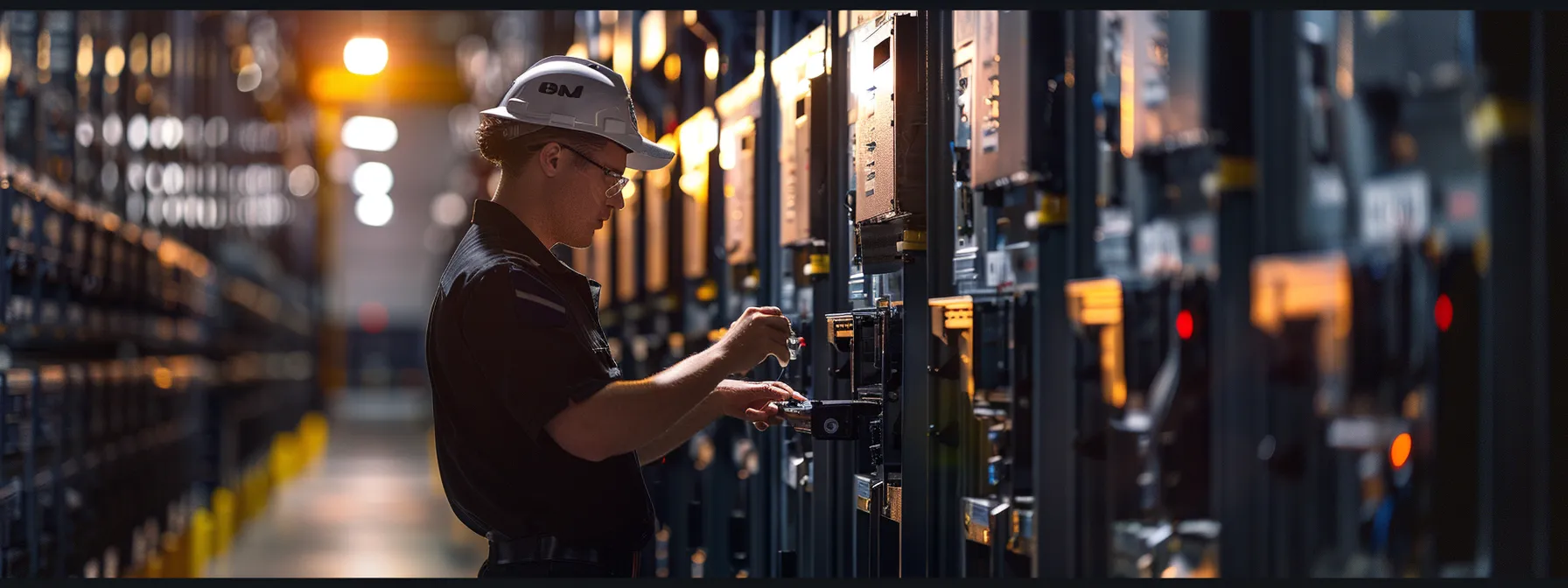
Identifying reliable UPS vendors in Philadelphia is crucial for enterprises seeking robust backup power solutions. The selection process involves thorough research of reputable suppliers, evaluation of vendor support and maintenance services, and careful consideration of customer reviews and references.
By focusing on these aspects, businesses can ensure they partner with UPS providers capable of delivering reliable power transfer systems that meet their specific needs. This approach helps organizations safeguard their operations against power disruptions and maintain business continuity through well-designed UPS systems.
Research and Shortlist Reputable UPS Suppliers
Researching and shortlisting reputable UPS suppliers in Philadelphia requires a thorough evaluation of their expertise in power distribution and emergency power systems. Enterprises should seek vendors with a proven track record in delivering reliable UPS solutions for various industries, including those with specialized lighting and energy storage requirements. This process ensures that businesses partner with suppliers capable of addressing their specific power protection needs.
To identify reputable UPS vendors, organizations should contact industry associations and review case studies of successful implementations. Companies should prioritize suppliers who offer comprehensive services, including system design, installation, and ongoing maintenance of UPS and related power infrastructure. A well-researched shortlist of vendors enables businesses to make informed decisions when selecting a UPS provider.
- Evaluate vendor expertise in power distribution and emergency power systems
- Review case studies and industry certifications
- Assess the range of UPS solutions offered, including specialized lighting and energy storage options
- Verify the vendor’s experience in serving diverse industries
- Consider the supplier’s ability to provide comprehensive services, from design to maintenance
Check Vendor Support and Maintenance Services
Checking vendor support and maintenance services is crucial when selecting a UPS power rental in Philadelphia. Enterprises should evaluate the availability of 24/7 technical support, on-site maintenance capabilities, and response times for critical power solutions. This assessment ensures that businesses can rely on prompt assistance during power emergencies and maintain the optimal performance of their power protection systems.
Organizations should review the vendor’s website for detailed information on their support offerings and maintenance programs for power supplies. It is essential to verify the availability of preventive maintenance services, remote monitoring capabilities, and spare parts inventory for critical power solutions. A comprehensive support and maintenance package contributes to the longevity and reliability of UPS systems, minimizing downtime and ensuring continuous protection for critical infrastructure:
- Evaluate 24/7 technical support availability
- Assess on-site maintenance capabilities and response times
- Review preventive maintenance programs
- Verify remote monitoring options
- Check spare parts inventory and availability
Read Customer Reviews and Ask for References
Reading customer reviews and asking for references is crucial when selecting a UPS vendor in Philadelphia. Organizations should examine online testimonials and case studies to gauge the reliability and performance of potential suppliers. These reviews often provide insights into the vendor’s ability to maintain high uptime for critical systems.
Enterprises should request references from vendors and contact previous clients directly to discuss their experiences. This approach allows businesses to verify the vendor’s claims and gain a deeper understanding of their service quality. Key areas to inquire about include:
- System reliability and uptime performance
- Quality of installation and commissioning processes
- Responsiveness to service requests and emergencies
- Accuracy of initial system sizing and recommendations
- Overall satisfaction with the vendor’s support and maintenance
Choosing a trustworthy UPS vendor lays the foundation for reliable power protection. Now, let’s explore how to balance quality and cost when investing in a UPS system for your business.
Cost Considerations When Investing in UPS for Your Business

Investing in an Uninterruptible Power Supply (UPS) system requires careful consideration of various cost factors beyond the initial purchase price. Enterprises in Philadelphia must analyze the total cost of ownership, including operational expenses and maintenance requirements, to make informed decisions.
Understanding warranty coverage and limitations is crucial for protecting the investment and ensuring long-term reliability. Additionally, evaluating the return on investment and potential savings over time helps businesses justify the expense and optimize their power protection strategies. By thoroughly examining these financial aspects, organizations can select a UPS solution that balances performance, reliability, and cost-effectiveness for their specific needs.
Analyze Total Cost of Ownership, Not Just Purchase Price
Analyzing the total cost of ownership (TCO) for UPS systems involves considering factors beyond the initial purchase price. Enterprises must evaluate long-term operational expenses, including energy consumption, maintenance costs, and potential upgrades, to make informed decisions about their power protection investments.
A comprehensive TCO analysis helps businesses identify hidden costs and potential savings associated with different UPS solutions. This approach enables organizations to select a system that offers the best value over its entire lifecycle, balancing performance, reliability, and cost-effectiveness.
Understand Warranty and What It Covers
Understanding the warranty coverage for UPS systems is crucial for protecting the investment and ensuring long-term reliability. Enterprises must carefully review warranty terms to identify covered components, duration of coverage, and any exclusions that may affect their power protection strategy. For those in need of uninterrupted power supply solutions, considering a UPS rental in Chicago could be a beneficial move.
A comprehensive warranty analysis helps businesses anticipate potential out-of-pocket expenses and plan for future maintenance needs. Organizations should consider factors such as on-site service availability, response times, and the process for warranty claims when evaluating UPS solutions:
- Review warranty duration for critical components
- Identify covered parts and labor
- Assess on-site service options and response times
- Understand the claim process and documentation requirements
- Evaluate extended warranty options for enhanced protection
Consider the Return on Investment and Savings Over Time
Evaluating the return on investment (ROI) and potential savings over time is crucial when selecting a UPS system for enterprises in Philadelphia. Organizations must consider factors such as reduced downtime costs, improved productivity, and protection of critical assets when calculating the long-term financial benefits of their UPS investment. This analysis helps businesses justify the expense and select a solution that aligns with their financial goals.
UPS systems can generate significant savings through improved energy efficiency, reduced equipment damage, and minimized data loss. Companies should assess the potential cost avoidance associated with preventing power-related disruptions and compare it to the total cost of ownership for different UPS options. This approach enables organizations to make informed decisions and optimize their power protection strategies for maximum financial benefit.
Investing wisely in UPS technology safeguards your business today. Anticipating future needs ensures your power protection strategy remains robust for years to come.
Future-Proofing Your UPS Investment for Your Enterprise
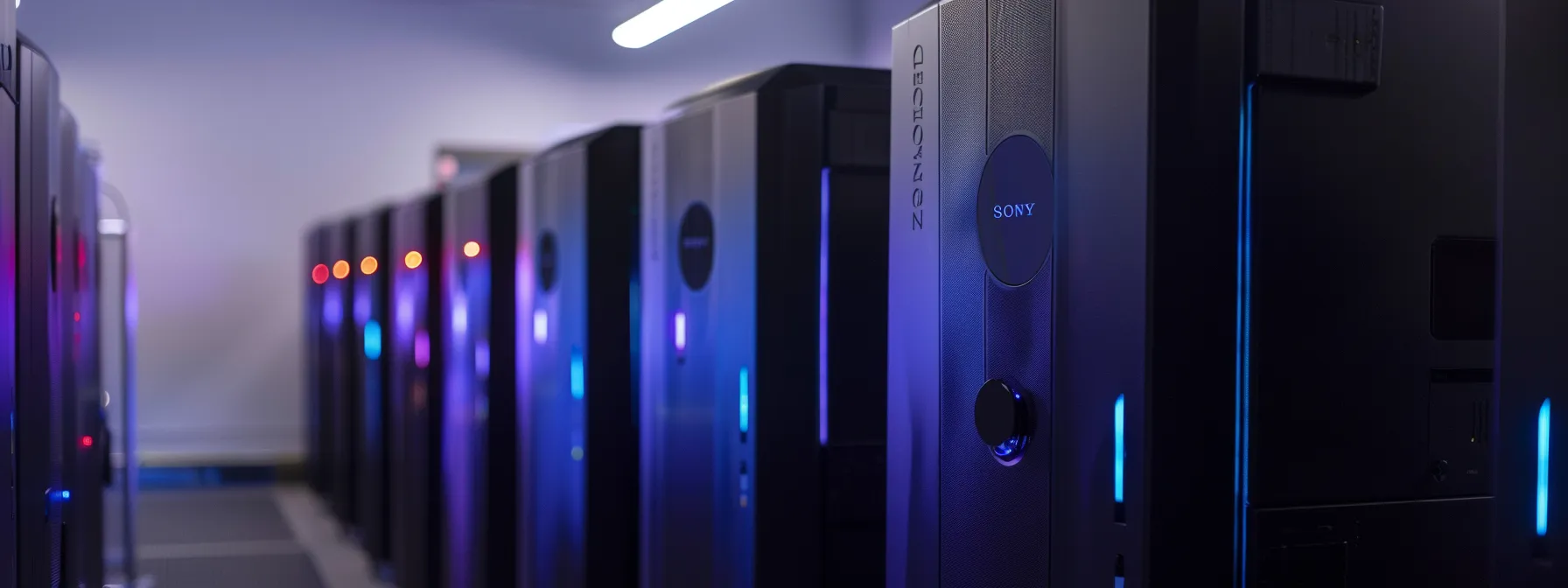
Future-proofing UPS investments is crucial for enterprises in Philadelphia seeking long-term power protection solutions. As technology evolves and power requirements change, organizations must select UPS systems with expandability options to accommodate growth. Evaluating software and connectivity features enables remote management, enhancing operational efficiency and responsiveness to power-related issues.
Staying informed about advancements in UPS technology helps businesses make strategic decisions about upgrades and replacements, ensuring their power infrastructure remains cutting-edge and reliable. By focusing on these aspects, enterprises can maximize the value and longevity of their UPS investments, adapting to changing power needs while maintaining robust protection for critical systems.
Look for UPS Systems With Expandability Options
Enterprises in Philadelphia should prioritize UPS systems with expandability options to accommodate future growth and changing power requirements. Modular UPS designs allow organizations to add capacity without replacing entire systems, reducing costs and minimizing disruptions to operations. This approach enables businesses to scale their power protection infrastructure as their needs evolve.
When evaluating UPS solutions, organizations should consider factors such as parallel capacity, hot-swappable components, and flexible power distribution options. These features provide the flexibility to adapt to changing power demands and technological advancements, ensuring long-term value for the investment:
Evaluate Software and Connectivity for Remote Management
Evaluating software and connectivity features for remote management is crucial when selecting a UPS system for enterprises in Philadelphia. Advanced monitoring and control capabilities enable organizations to proactively manage their power infrastructure, optimizing performance and reducing downtime risks. These features allow IT teams to remotely monitor UPS status, receive real-time alerts, and perform diagnostics without physical presence at the facility.
When assessing UPS software and connectivity options, businesses should consider compatibility with existing network infrastructure and integration with data center management platforms. Key features to evaluate include:
- Real-time power quality monitoring and analysis
- Customizable alerts and notifications
- Remote configuration and firmware updates
- Integration with virtualization platforms for automated shutdown procedures
- Comprehensive reporting and trend analysis capabilities
Stay Informed About New Advancements in UPS Technology
Staying informed about new advancements in UPS technology is crucial for enterprises in Philadelphia seeking to maintain cutting-edge power protection solutions. Organizations should regularly research industry publications, attend trade shows, and engage with UPS manufacturers to stay abreast of emerging trends and innovations. This proactive approach enables businesses to make informed decisions about upgrades and replacements, ensuring their power infrastructure remains reliable and efficient.
Advancements in UPS technology often focus on improving energy efficiency, reducing environmental impact, and enhancing system intelligence. By staying informed about these developments, enterprises can identify opportunities to optimize their power protection strategies and potentially reduce operational costs. Key areas of innovation to monitor include:
- Advanced battery technologies for improved energy density and longer lifespan
- Smart grid integration capabilities for enhanced power management
- Predictive maintenance features utilizing artificial intelligence
- Compact designs for more efficient space utilization
- Sustainable materials and manufacturing processes for reduced environmental impact
Frequently Asked Questions
How do I determine the right UPS capacity for my enterprise?
Determining the right UPS capacity for an enterprise involves assessing the total power requirements of critical equipment. This includes calculating the wattage of servers, networking devices, and other essential hardware.
Factors like future growth, redundancy needs, and runtime during outages should also be considered. A professional energy audit can provide accurate power consumption data. Once the total load is known, select a UPS with capacity that exceeds the calculated requirements by 20-30% to account for potential increases in power demand and ensure optimal performance during peak usage periods.
What are the main types of UPS technologies available for businesses?
Businesses can choose from three main types of UPS technologies: standby, line-interactive, and double-conversion. Standby UPS systems provide basic protection, activating battery power during outages. Line-interactive UPS offers better voltage regulation and is suitable for areas with frequent power fluctuations.
Double-conversion UPS provides the highest level of protection, constantly converting AC to DC and back to AC. This type is ideal for sensitive equipment and critical applications. Each UPS type offers different levels of protection and efficiency, allowing businesses to select based on their specific needs and budget.
Why is battery life important when choosing a UPS system?
Battery life is crucial when selecting a UPS system because it determines how long critical equipment can operate during power outages. A longer battery life ensures continuous operation of essential devices, preventing data loss, equipment damage, and business disruptions. This is especially important for industries that rely heavily on uninterrupted power supply.
The battery life of a UPS system also affects its overall reliability and maintenance requirements. A UPS with a longer battery life typically requires less frequent replacements, reducing long-term costs and minimizing downtime associated with battery changes. This makes it a key factor in choosing a cost-effective and dependable UPS solution.
How can I find reputable UPS vendors in Philadelphia?
To find reputable UPS vendors in Philadelphia, start by researching online directories and review sites specific to the area. Check local business associations and chambers of commerce for recommendations. Ask for referrals from other businesses or colleagues who have experience with UPS vendors in the city.
Contact potential vendors directly and request information about their services, pricing, and reliability. Schedule meetings or site visits to assess their facilities and equipment. Verify their licenses, certifications, and insurance coverage. Compare quotes and service offerings from multiple vendors before making a decision. For services in Philadelphia, you might consider UPS vendors in Philadelphia.
What factors should I consider for future-proofing my UPS investment?
When future-proofing a UPS investment, consider the expected growth of power requirements for your equipment. Evaluate the scalability of the UPS system, ensuring it can accommodate increased loads without requiring a complete replacement. Additionally, assess the compatibility with emerging technologies and potential energy efficiency improvements.
Examine the UPS manufacturer’s track record for innovation and support. Look for systems with modular designs that allow for easy upgrades and maintenance. Consider the availability of replacement parts and the expected lifespan of the UPS components. Finally, factor in the total cost of ownership, including energy consumption and maintenance expenses over time.
Conclusion
Selecting an appropriate Uninterruptible Power Supply (UPS) in Philadelphia is crucial for enterprises to ensure operational continuity during power outages. Thorough assessment of power needs, understanding of UPS technologies, and consideration of runtime and battery life are essential steps in the selection process.
Identifying reliable vendors, analyzing total cost of ownership, and future-proofing investments contribute to long-term success and reliability. By following these essential tips, businesses can optimize their power protection strategies, minimize downtime risks, and safeguard critical systems against unexpected power disruptions.
Air Power Consultants is your go-to partner for securing top-notch UPS (Uninterruptible Power Supply) rental solutions in the United States, designed to keep your business operational through any emergency. Our inventory spans stand-alone and UPS trailer mounted rental in Philadelphia, ensuring a perfect fit for any requirement your business might face, from severe weather conditions to power outages, and even for dependable power sources for outdoor projects. This includes prompt delivery and pickup across the Philadelphia metropolitan area and beyond with adaptable rental agreements.

We recognize the critical importance of having a reliable uninterrupted power supply rental in Philadelphia, particularly for businesses that provide essential services. That’s why Air Power Consultants offers UPS rental in Philadelphia. We can help you choose which UPS system rental in Philadelphia fits your business, our team of experts can provide the information you need to make an informed decision. Making sure your business has the uninterruptible power it needs is our top priority.
For personalized consultation and to explore our UPS rental solutions in Philadelphia and more, get in touch with us at Air Power Consultants. You can reach us at 913-894-0044 or via email: info@apcikc.com.

